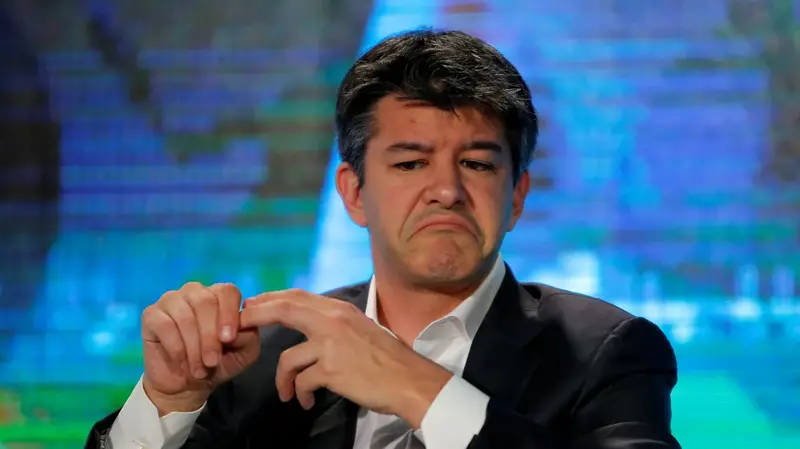Emil Uber, a visionary entrepreneur, has significantly impacted the transportation industry through innovation and technology. Known for his strategic thinking and commitment to sustainability, Emil Uber has been at the forefront of the rideshare revolution. This article delves into his background, the inception of Uber, and the profound effects of his work on global transportation systems.
Early Life and Education
Born in a modest neighborhood, Emil Uber demonstrated a keen interest in technology from a young age. His early fascination with computers led him to pursue a degree in computer science at a prestigious university. During his time at school, he excelled in various projects, showcasing his ability to think outside the box.
His academic journey was marked by a strong focus on software engineering and mobile applications. Emil’s passion for technology and its potential to improve everyday life set the foundation for his future ventures. Graduating with honors, he quickly entered the tech industry, eager to make his mark.
The Birth of Uber
Emil Uber’s journey into the world of ridesharing began with a simple idea: to connect drivers with passengers more efficiently. In 2009, he co-founded Uber, a platform that would revolutionize how people commute. The app allowed users to summon rides with just a tap on their smartphones, making transportation more accessible and convenient.
The initial launch was met with skepticism, but Emil’s persistence paid off. He focused on building a robust infrastructure that ensured safety and reliability. By prioritizing user experience and addressing concerns head-on, Emil Uber laid the groundwork for what would become a global phenomenon.
Innovations in Ridesharing
One of Emil Uber’s most notable contributions to the industry is the integration of technology into transportation. Under his leadership, Uber introduced features such as real-time tracking, in-app payments, and ride-sharing options. These innovations not only improved user satisfaction but also set new standards for the entire industry.
Additionally, Emil Uber was instrumental in expanding the platform’s reach. By incorporating various vehicle options, including electric and hybrid cars, he emphasized the importance of sustainability. His vision was clear: to create a transportation system that was not only efficient but also environmentally friendly.
Challenges and Controversies
Despite the success, Emil Uber faced numerous challenges along the way. The rapid growth of the company led to regulatory scrutiny in many cities. Local governments were often unprepared for the disruption caused by ridesharing, resulting in legal battles and protests from traditional taxi services.
Emil Uber took these challenges in stride, advocating for fair regulations that would benefit all parties involved. His approach to dialogue with regulators and stakeholders showcased his commitment to finding solutions rather than exacerbating tensions.
Global Expansion
Under Emil Uber’s guidance, the company expanded its services worldwide. From the bustling streets of New York to the busy markets of Mumbai, Uber quickly became a household name. Emil’s strategy involved understanding local markets and adapting the business model to meet diverse needs.
The expansion also included the introduction of Uber Eats, which capitalized on the growing demand for food delivery services. This diversification not only boosted revenue but also reinforced Uber’s position as a leader in the tech-driven economy.
Social Impact
Emil Uber has always been passionate about the social implications of his work. He recognized that transportation is a critical factor in economic mobility. By providing flexible job opportunities for drivers, Uber helped create a new workforce that valued independence and entrepreneurship.
Furthermore, Emil emphasized safety and community building within the Uber ecosystem. Initiatives aimed at enhancing driver and passenger security were implemented, fostering a sense of trust. His belief in social responsibility was reflected in various community programs that aimed to give back to society.
Technological Advancements
Emil Uber has continuously pushed for technological advancements to enhance the Uber experience. The introduction of artificial intelligence and machine learning allowed for better route optimization, reducing wait times and improving overall efficiency.
Moreover, Uber’s commitment to research and development led to the exploration of autonomous vehicles. Emil’s foresight in this area positioned Uber as a leader in the future of transportation. The potential for self-driving cars to transform urban mobility is immense, and Emil is at the helm of this exciting journey.
Future Vision
Looking ahead, Emil Uber envisions a future where transportation is seamlessly integrated into daily life. His goal is to create a world where mobility is sustainable, efficient, and accessible to everyone. To achieve this, he is investing in green technologies and exploring partnerships that align with his vision.
Emil also advocates for policies that support innovation in transportation. He believes that collaboration between governments, businesses, and communities is essential for building a sustainable future. His proactive approach ensures that Uber remains a relevant player in an ever-evolving landscape.
Conclusion
Emil Uber’s contributions to the transportation industry are undeniable. His innovative spirit and commitment to sustainability have reshaped how people think about mobility. From the inception of Uber to its global expansion, Emil has consistently pushed the boundaries of what is possible.
As we move into an era of technological advancement, Emil Uber’s vision for the future of transportation serves as an inspiration. His dedication to creating a better, more connected world will continue to influence generations to come. In a rapidly changing landscape, Emil Uber stands as a beacon of innovation and progress in the transportation sector. Visit my site for more information on Daily Guidness.
